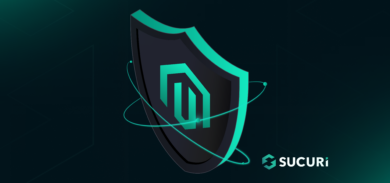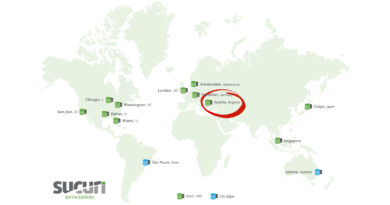The word cybercrime is no longer just a word you hear coming from Fortune 500 CEOs anymore. This word has being flashed on every good morning news show and radio channel.
Cybercrime can target any business or website owner. Even the average person who thought they were safe from hackers because they didn’t own a business – or their business wasn’t “big enough” to be hacked – can become a cybercrime victim.
What Constitutes a Cybercrime
A cybercrime is classified as any illegal or unethical activity committed through the use of the internet or a computer. Cybercriminals use vulnerabilities to exploit holes in a network or a website to extract valuable data.
Cyberattacks target the general public, as well as national and corporate organizations. These attacks are carried out through:
- malicious programs (viruses)
- unauthorized web access
- fake websites
- compromised websites
Cybercrime can steal personal or institutional information from their targets, causing far-reaching damage.
How Cyberattacks Cost Businesses
Typically, small and medium sized businesses underestimate the cost of a cyber attack. A lot of times, business owners believe that they can wait until their businesses get bigger or think they are too small to have to worry about being attacked. The reality is that smaller businesses can be more attractive to cybercriminals if they do not implement security measures, which makes them easy targets.
Cyberattacks can become very expensive for victims. Not only does it include the financial cost of being a cybercrime victim, but also the damage it does to a company’s reputation and overall customer trust.
According to Radware, there are 3 major impacts from a cyberattack that a company needs to consider:
- Customer loss can be as large as 41%.
- Reputation loss can be as high as 34%.
- Operational loss can be as high as 34%.
What is the Average Cost of a Cybercrime?
The digital landscape is changing quickly, and cybercrime is on the rise. Last year, there were 2.3 billion data breaches, compared to 826 million in 2017.
With attacks becoming increasingly sophisticated and hard to defend against, they can cost organizations a lot of money each year.
After surveying 790 IT executives Radware stated that the average estimated cost of a cyberattack for an enterprise was $1.1 million in 2018—up 52% from the year before. That number is expected to rise to $1.7 million in 2019.
Worldwide cybercrime costs an estimated $600 billion USD a year.
Malware and web-based attacks were the most expensive, at $2.6 million and $2.3 million respectively.
According to Accenture, these two types of cyberattacks “represented a third of all cybercrime costs globally last year”.
However, the biggest jump in costs came from malicious insiders, which are attacks launched by somebody who has authorized system access to a network or a computer.
Last year, insider attacks cost organizations $1.6 million on average, a 15% increase in 2017.
For small businesses the financial impacts are less, but they can still range in the tens of thousands. The average cost of a cyberattack is $86k for small businesses.
The question all companies big or small need to ask themselves is: what is the price you pay by not securing your customers information?
How to Protect your Business From Cyber Attacks
Here are a few ways that you can protect your business from a cyberattack:
Understand what is sensitive data and what is not.
Credit card information is often the favorite target of cyberattackers, but depending on your business, you may have other information that is just as valuable to hackers.
Educate your employees on cybersecurity best practices.
The more your employees know about cyberattacks and data protection, the better off your company will be.
Here are some simple security best practices that you can teach your employees and coworkers:
- Do not open email attachments from people you do not know.
- Implement procedures for encrypting personal or sensitive information.
- Require regular password changes.
- Do not leave your computer unlocked when you are not using it.
If you would like to learn more personal security tips, watch our personal online privacy webinar:
Have a Website Security Plan
Make sure you have got the right partners and tools to secure your infrastructure.
- Do you have a WAF (web application firewall) in place to protect your site? Sucuri offers one of the best website firewalls in the industry.
- Is your ecommerce platform PCI-DSS (payment card industry data security standards) Level 1 compliant?
- After reading about the impact of cybercrime and the costs of a data breach, can you afford not to secure your site?
Sucuri offers you peace of mind by securing all of your websites at an affordable price. You can check out our website security plans or ask for a free consultation.










